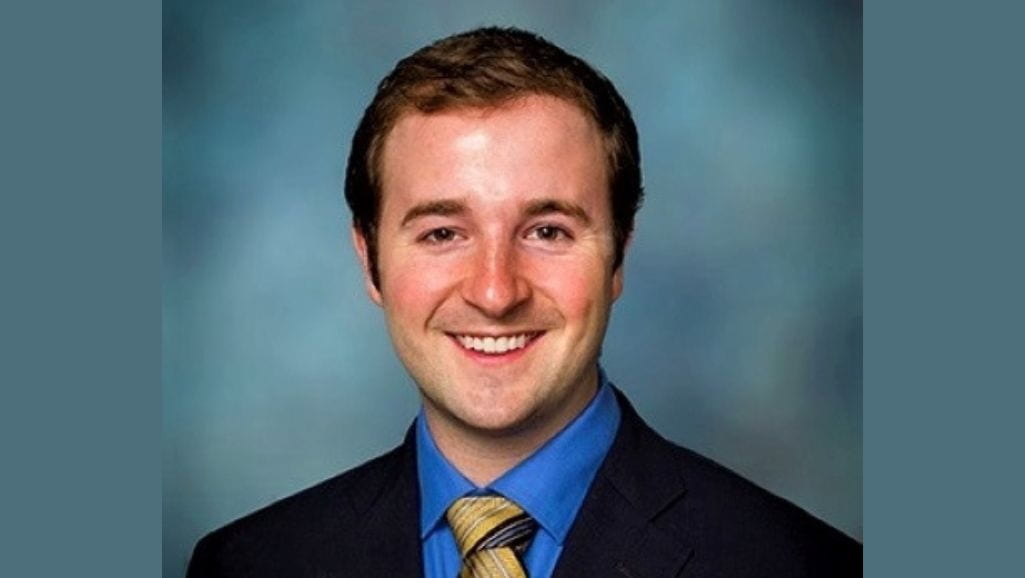Congratulations to John “Jack” Flores on receiving a Joyce Chapman Community Grant for the project “Qualitative Analysis to Understand the Rise of Congenital Syphilis in Chicago, IL”! In partnership with Third Coast Center for AIDS Research (CFAR) and Chicago Center for HIV Elimination (CCHE), Flores will conduct qualitative interviews with individuals who have given birth to children with possible or confirmed congenital syphilis, as well as doctors and other staff involved in their prenatal care, to identify factors impacting their entry into, retention in, and outcomes from care. Read more about C3EN’s Joyce Chapman Community Grant projects and apply for a grant HERE.
Dr. Flores is a 3rd year combined adult and pediatric infectious diseases fellow at University of Chicago Medicine and Comer Children’s Hospital. His scholarly interests include clinical research pertaining to HIV/Syndemic infections, adolescent and young adult health, maternal-fetal infections, and LBGTQAI+ health. As a medical student, resident, and fellow, he has worked in the realms of community-based participation research, mixed methods research, spatial analytic/GIS, and quality improvement projects. His goal is to become a MedPeds infectious diseases physician at an academic center and continue to engage in rewarding clinical and scholarly work.
How did you become interested in health equity?
I would say it started with two research mentors from medical school (Dr. Barbara Taylor) and residency (Dr. Maximo Brito), who are both HIV doctors and clinical researchers focusing on health equity research. Unfortunately, with HIV, HIV preventative care, and various other STI’s, we continue to see disparities of access to care and medication uptake among certain disenfranchised populations. Under their passionate mentorship, I saw how health equity work allowed them to engage directly with members of the community in their research. I could tell that this was an aspect of my career that I wanted to incorporate into my clinical and scholarly work. Seeing firsthand the direct impact of the work and the lasting relationships you can create with our patients and their advocates in the field is deeply rewarding.
How did you become interested in your C3EN research topic?
I’m currently working on the rise of maternal & congenital syphilis in the city. Once thought to be nearly dormant in our city, there has been an unprecedented rise in this disease over the last few years, with a 773% increase nationwide in the last decade and 400% increase in the city of Chicago over the last 3 years for congenital syphilis specifically. A few published quantitative research projects looking at electronic health record data and data reported to the local and state departments of public health suggest this rise has to do with missed opportunities for diagnosis and treatment during pregnancy. I want to know why this is happening on a more detailed and granular level. So, under the guidance of Dr. John Schneider, one of our University of Chicago faculty members in the sections of Infectious Diseases and Public Health Sciences, I developed a project seeking to interview both prenatal providers (MD, DO, CNM’s, APRN, PA, etc) and mothers who delivered infants with congenital syphilis to investigate if there were any common themes or factors that may have led to these outcomes. This is a very personal and stigmatizing medical outcome for many people, and I knew that recruitment of participants would be time-intensive, requiring a multidisciplinary team, and also requiring a substantial amount of cultural competence. The Joyce Chapman Community Grant not only offered the financial support needed to conduct this project but also encouraged me to reach out to community health workers, non-academic service organizations, and other front-line groups and form relationships essential to the success of this project.
How does your Joyce Chapman Community Grant project fit into your broader research?
The goal of my qualitative project is not only to figure out more details as to why congenital syphilis is on the rise but what we are going to do about it. I’m hopeful that our results will be able to encourage improvements in our health care system to help identify and treat individuals with syphilis early, so we may avoid downstream effects such as congenital syphilis. More importantly, through the creation of these community relationships, we could work collaboratively to help reduce the spread of syphilis and other STIs in the community together and find out exactly the desires and needs for change from the patients and their advocates themselves, as opposed to from the perspectives of the providers. We didn’t expect to see this rise in syphilis, or other recent infections such as COVID-19, and likely there will be other infectious diseases in the future that will require tailored interventions to allow the most equitable responses so every person who may be affected may get the best possible preventative or therapeutic care. I’m optimistic that if these scenarios arise, the relationships developed, and strategies created from this project may benefit future research endeavors.
Do you have any fun facts to share?
When I’m not working, I consider myself a full-time father of two young children, with my hours filled with making blanket and pillow forts, art projects, and other fun activities with the kiddos. Additionally I enjoy all University of Notre Dame sports, weekly Pub Trivia nights (history and geography are my main contributions), musicals, Greek mythology, exploring Chicago restaurants, concerts of all types, and even making homemade riddles on the side.

